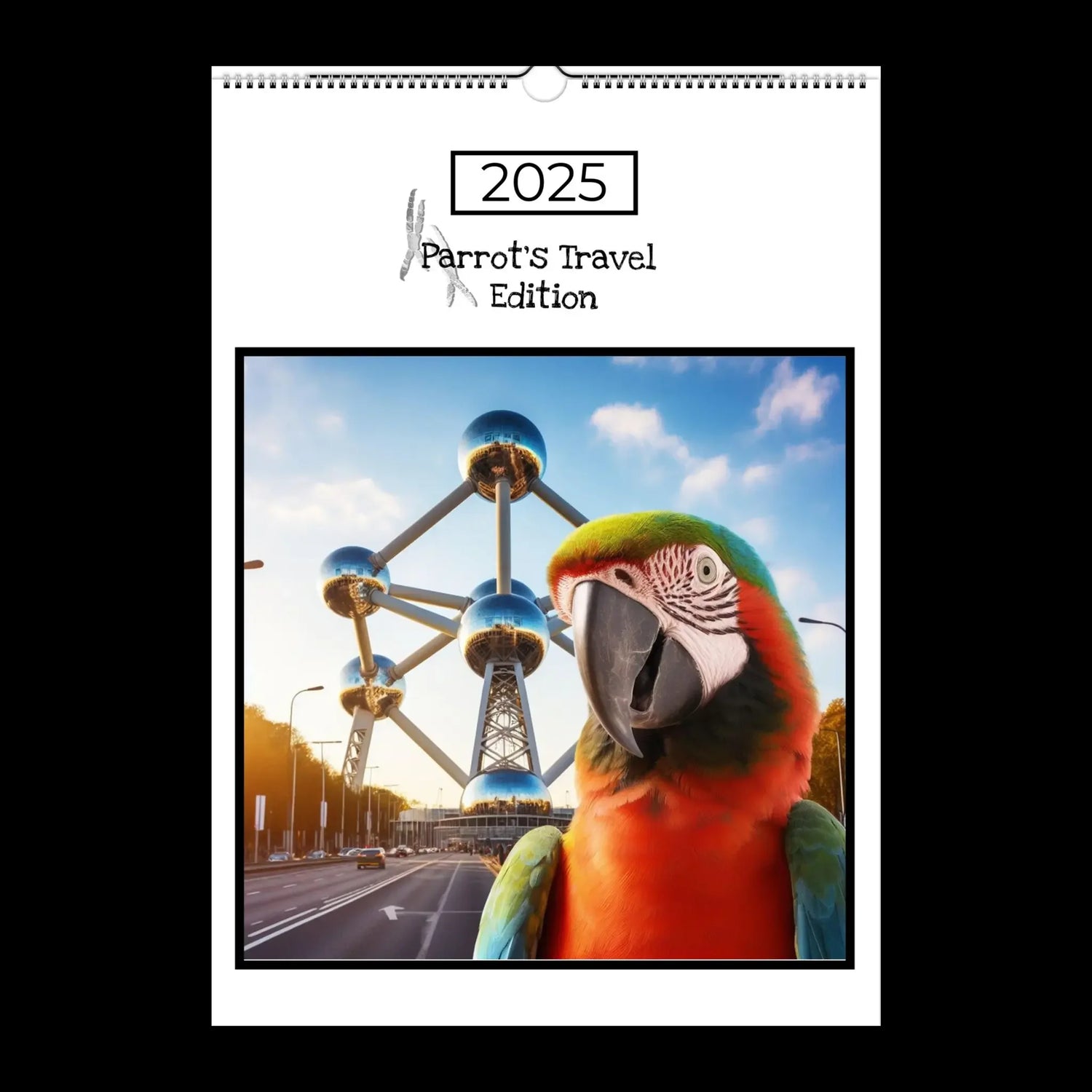Poisonous Fruits & Vegetables
Discover which fruits and vegetables are dangerous for parrots and parakeets. Protect your bird by knowing what you should never feed.
Dangerous Vegetables
Avocado – Contains persin, a fatty acid that damages the heart of parrots and can be fatal, even in small amounts.
Onion, garlic, leek and chives – Lead to anemia and organ damage due to sulfur compounds.
Raw beans (especially kidney beans) – Contain lectins which are toxic and can cause fatal poisoning.
Rhubarb – High in oxalic acid, which binds calcium and leads to kidney problems.
Green potato and shoots – Contain solanine, a potent neurotoxin.
Raw eggplant – Also contains solanine; cooked and without the peel, it may be safe, but not recommended.
Tomato plant (leaf and stem) – Toxic due to tomatine; fruit must be ripe and pitted.
Mushrooms (all types) – May contain fungal toxins; birds are extremely sensitive to these.
Cabbage (in large quantities) – Disrupts thyroid function due to goitrogens.
Spinach and Swiss chard – High in oxalic acid, inhibits calcium absorption.
Brussels sprouts, broccoli, cauliflower – Gas formation and intestinal problems in sensitive species.
⸻
Dangerous Fruit
Apple seeds and seeds of cherries, peaches, plums, and apricots – Contain cyanogenic substances that form cyanide in the body.
Unripe elderberries and elderberry bush parts – Very toxic to birds.
Citrus fruits (in excess or with peel ) – Acidic and hormonally disruptive; peel contains pesticides.
Mango and papaya (pit and skin) – Only the flesh is safe; the skin and pit may contain harmful substances.
Passion fruit (unripe) – Can irritate the gut and is acidic; only give ripe fruit in small amounts.
Bananas, grapes, dates, figs – Not toxic, but very high in sugar; increases the risk of obesity and liver problems.
⸻
Caution: Even small amounts of these products can be seriously harmful. Only provide fruits and vegetables that are safe, unsprayed, and without peels or pits, and always adjust the amount to your parrot's species and sensitivity.
⸻
Poisonous Fruits and Vegetables for Parrots – Comprehensive and Species Specific
Many fruits and vegetables popular in human diets can be harmful or even fatal to parrots . Birds' digestive systems are sensitive and cannot break down certain substances as humans can. Even small amounts of certain foods can be fatal .
Below you'll find a detailed overview of what you should absolutely avoid in your parrot's diet – including common ingredients like mushrooms, onions, avocado, citrus fruits, and beans. This list applies to all parrot species, but specific sensitivities are also explained for each species.
⸻
🦜 Species-Specific Sensitivities
Each parrot species has its own sensitivities. Some are particularly sensitive to certain substances or have a slower metabolism.
African Grey Parrot (Psittacus erithacus)
This species is very sensitive to toxins and heavy metals. They should absolutely not be fed avocados, onions, fruit pits, or mushrooms. All fruits and vegetables must be unsprayed and thoroughly washed.
Macaws (Ara spp.)
Although large and robust, macaws are sensitive to high-fat foods. Avocado, fatty seeds, and high-sugar fruits like bananas and grapes should be severely limited. Mushrooms and beans without thorough preparation should be avoided.
Amazon parrots (Amazona spp.)
These birds are prone to fatty liver disease and obesity. Fatty vegetables and fruits like corn, avocado, and banana should be given in moderation. Citrus fruits can also disrupt their gut flora balance.
Eclectus parrots (Eclectus roratus)
Their gut flora is extremely sensitive. They often react to additives, sugars, and citrus fruits. Avocados, mold-bearing products like mushrooms, and synthetically processed fruit products (such as dried fruit with sugar) are not recommended.
Cockatoos (Cacatua spp.)
Cockatoos are very sensitive to hormones. Products like bell peppers, citrus fruits, and sugary fruits can increase this activity. Avocado and mushrooms are strictly forbidden. Pay extra attention to the amount of fruit in their diet.
Caiques, senegals, pionuses (Poicephalus spp.)
These smaller species can be more susceptible to diarrhea and digestive problems. Avoid citrus fruits, avocados, or products high in oxalic acid. Cooked vegetables are often more digestible.
Cockatiels and budgerigars
Even small amounts of toxic substances are life-threatening for them. Even traces of avocado, mushrooms, onions, or fruit pits can be fatal. Only unsprayed, organic fruits and vegetables, without peels or pits, should be fed.
Poisonous Vegetables
Avocado is without a doubt the most dangerous vegetable for parrots . This fruit contains a substance called persin, which attacks the bird's heart and can be fatal within hours, even in very small doses. The flesh, skin, and pit are all poisonous.
Onions, leeks, garlic, and chives belong to the allium family and contain sulfur compounds that damage red blood cells. This leads to anemia and ultimately death. Even when cooked, these vegetables remain dangerous to birds.
Raw beans , especially red kidney beans , contain lectins (such as phytohemagglutinin) that are toxic when consumed uncooked. It's essential that beans, if given, are always fully cooked. However, the risk is so high that it's best to avoid them entirely.
Rhubarb contains oxalic acid, which hinders calcium absorption in the body. In larger doses, it can cause kidney problems. Rhubarb is also not a safe vegetable for parrots.
Green potatoes or potato shoots contain solanine, a neurotoxin that can cause nausea, convulsions, and respiratory problems. Most birds will instinctively avoid these bitter parts, but even small amounts are risky.
Tomato plants —note: not the fruit, but the leaves and stems —contain tomatine, which is poisonous to birds. Ripe, pitted tomatoes are fine in moderation, but make sure there are no green parts or stems attached.
Mushrooms , even edible varieties for humans , are not recommended for parrots. They contain natural fungal compounds that can be toxic to birds, especially since their livers are much more sensitive to toxins than those of humans.
Cabbage varieties such as white cabbage, broccoli, pointed cabbage, and kale contain goitrogens that, in large doses, can affect the thyroid gland. A small amount, lightly steamed, is not immediately dangerous for most parrots, but frequent consumption is not recommended.
Raw eggplant , like potatoes and tomatoes , belongs to the nightshade family and contains solanine. Cooked and peeled, it's less problematic, but caution is still advised.
Brussels sprouts and other vegetables containing high levels of sulphur are not poisonous, but they cause gas and can cause digestive problems in birds with sensitive intestinal flora.
Zucchini and cucumber aren't toxic in themselves, but they contain very few nutrients. Excessive consumption can cause diarrhea or lead to deficiencies in essential vitamins.
Spinach and Swiss chard contain oxalic acid, which binds calcium in the body and can thus cause deficiencies. Small amounts are not a problem, but they should not be a major part of the diet.
⸻
Poisonous or Risky Fruit
Although fruit seems healthy in principle, there are some important exceptions when it comes to birds. The greatest danger often lies in the seeds of the fruit.
Apple seeds , like pear, cherry, plum, apricot, and peach seeds, contain cyanogenic glycosides that are converted to cyanide in the body. Only the flesh is safe; the seeds should always be carefully removed.
Unripe elderberries and parts of the plant are poisonous to birds. Ripe berries can be given in moderation, but there is a high risk of confusion with unripe ones.
Wild berries or unknown berries found in nature are generally best avoided unless you're certain they're safe. Blueberries, raspberries, and blackberries, on the other hand, are safe as long as they're not sprayed.
Citrus fruits such as oranges, mandarins, lemons, and limes can be given in moderation , but only the pulp . The peel, especially of non-organic fruits, contains pesticides and mold inhibitors that are very harmful. Excessive citrus can also disrupt the digestive system or increase hormonal activity, especially in Eclectus parrots and cockatoos.
Mango and papaya are generally safe in small quantities, but the peel and pit are not suitable. The flesh should only be given when fully ripe and without additives.
Passion fruit is naturally acidic and can irritate the digestive system, especially if unripe. Only ripe passion fruit, cut into small pieces, is safe.
Bananas, grapes, figs, and dates are energy-rich and high in sugar. They're not toxic, but regular consumption can lead to weight gain or disrupted gut flora. So, use this type of fruit as an exception or a treat.
⸻
Have any further questions? Don't hesitate to contact us!
-
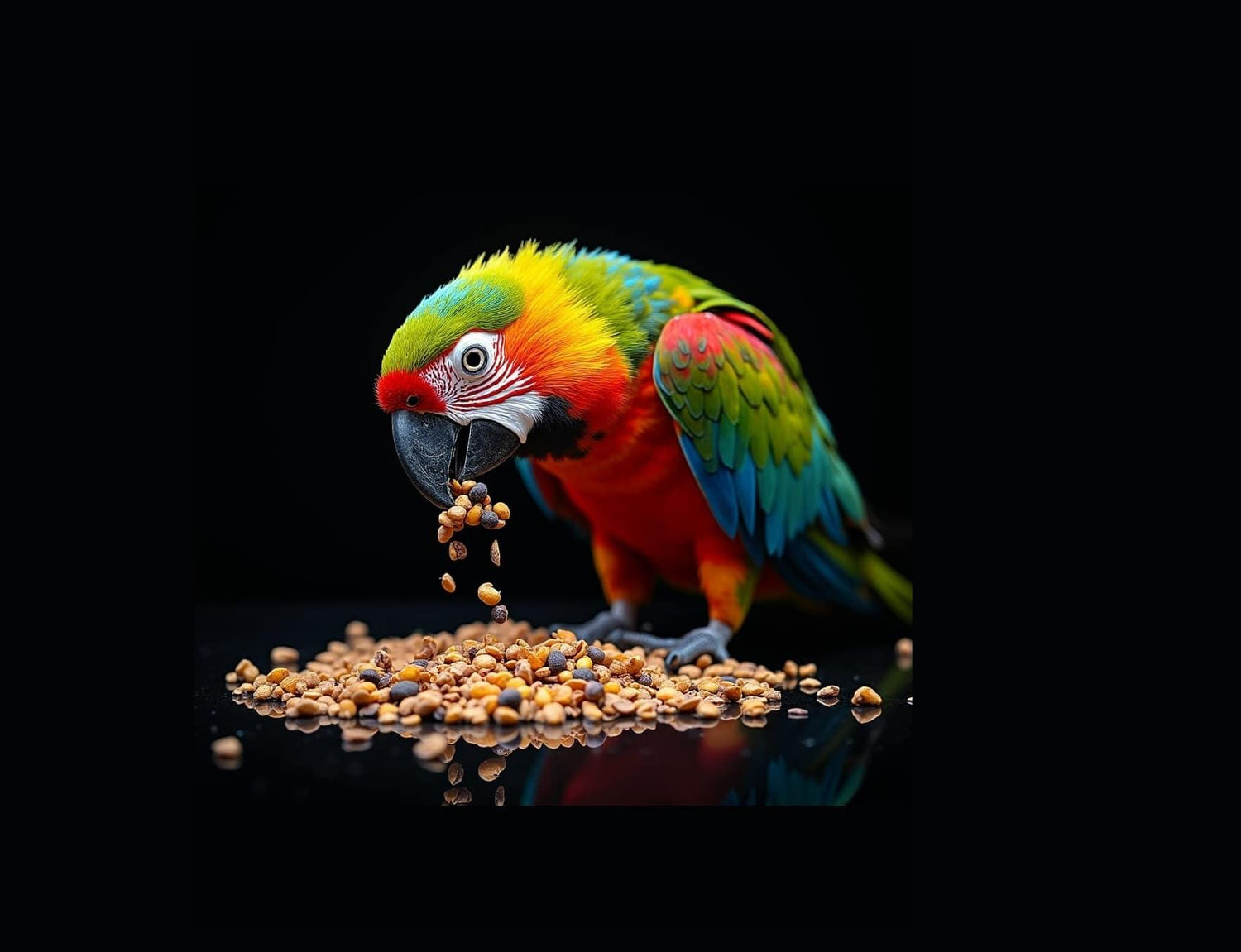
Food & Treats
At Parrotshop we understand how important the right food is for the...
-
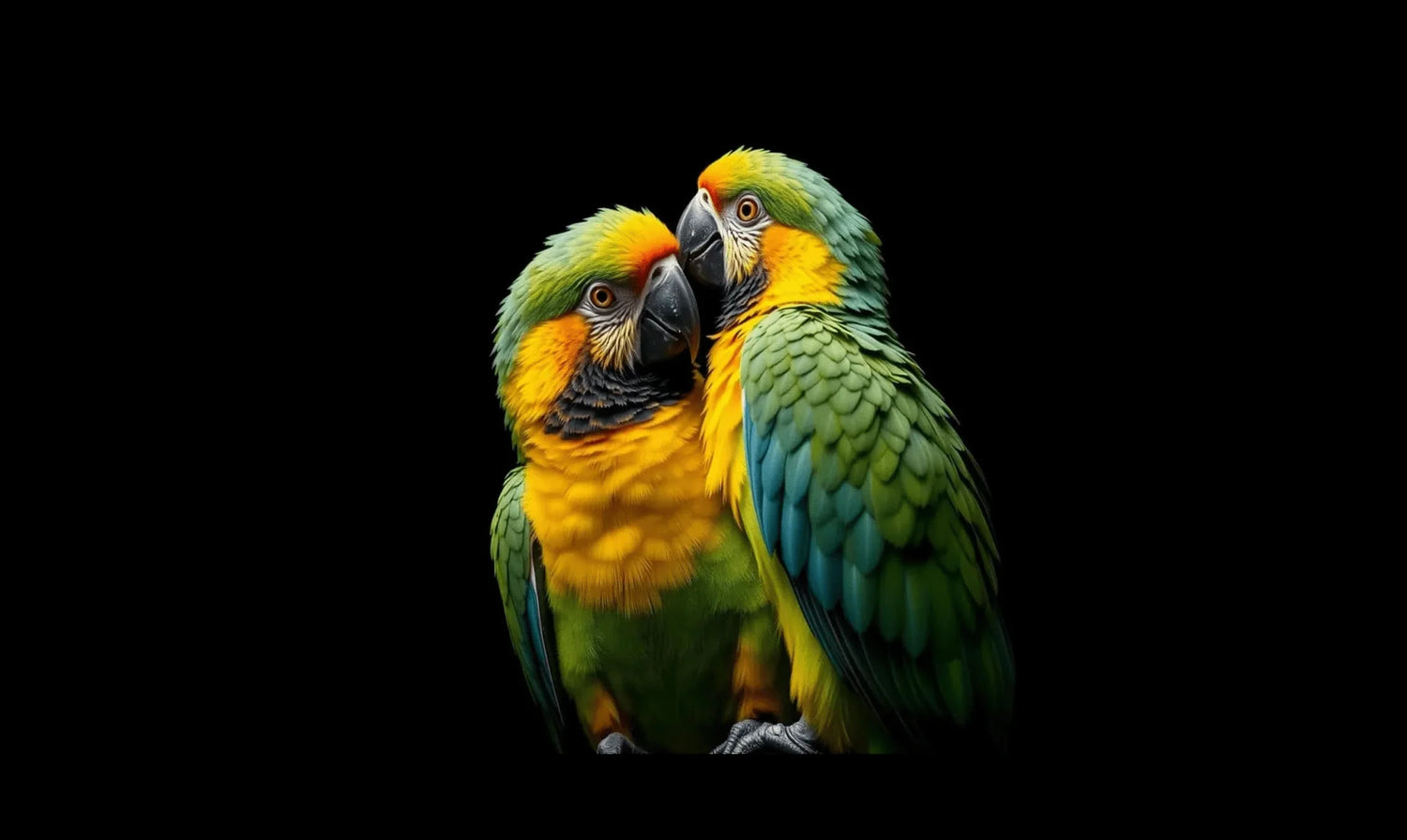
Health & Care
Here you will find our assortment!A healthy bird is a happy bird...
-
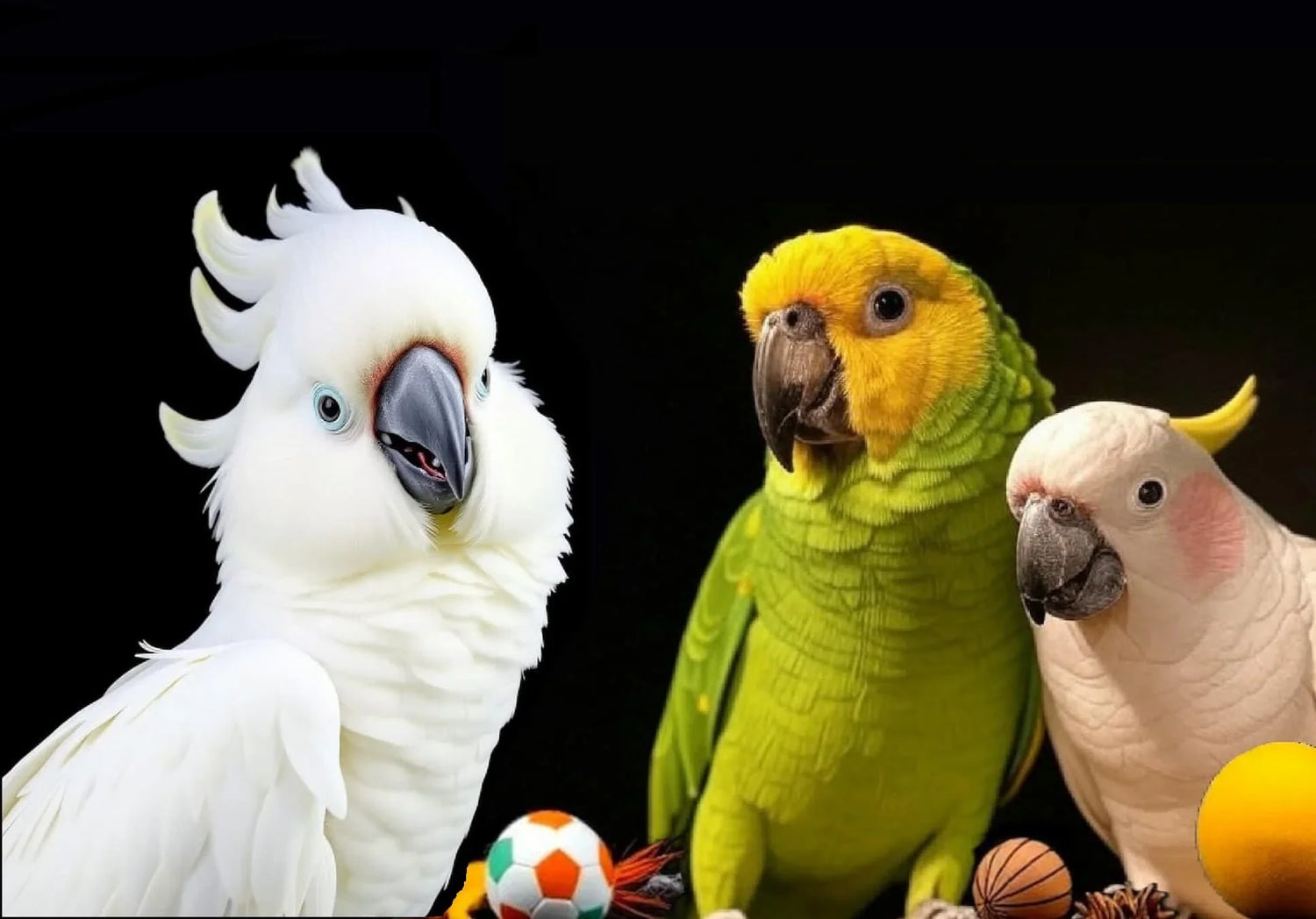
Play & activity
Promote mental and physical stimulation and relieve anxiety by providing entertainment. In...
-
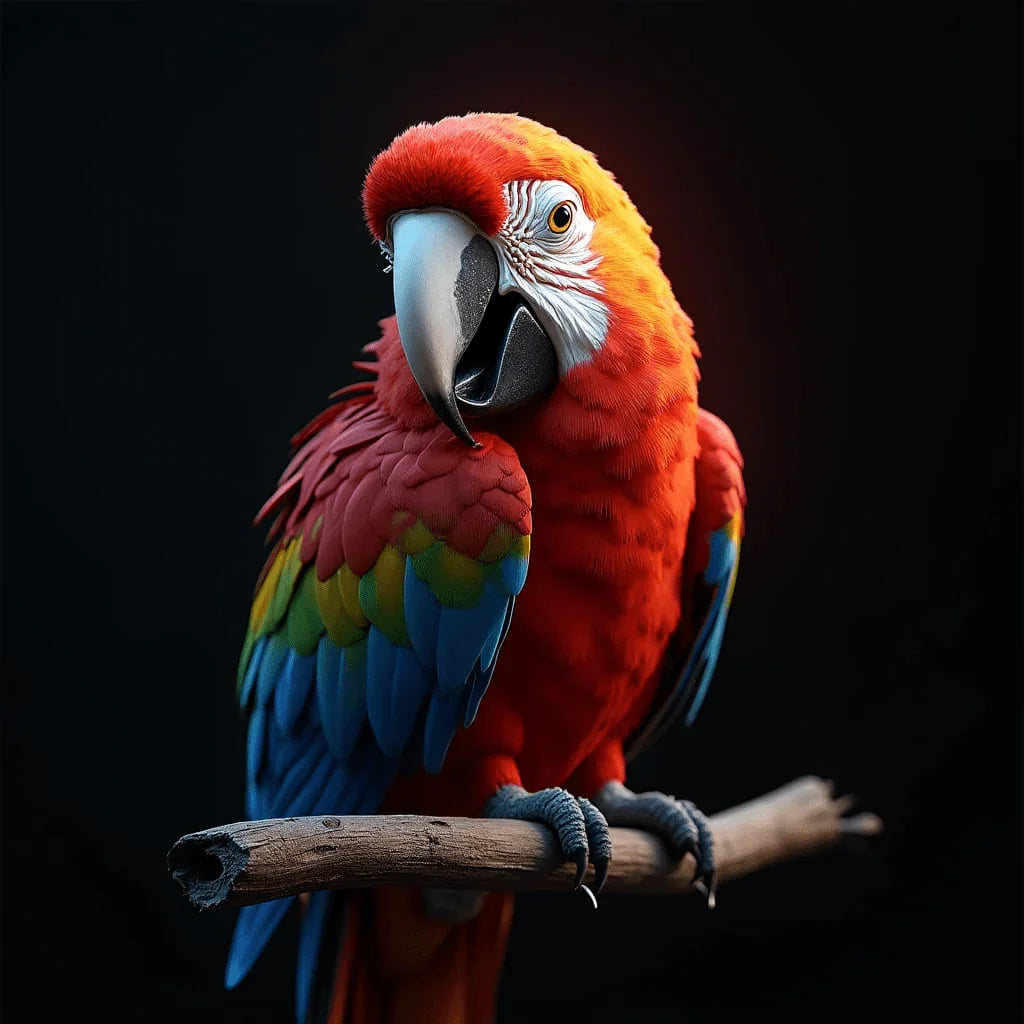
Perches & co
Perches should of course not be missing in a bird cage. Parrot...
-
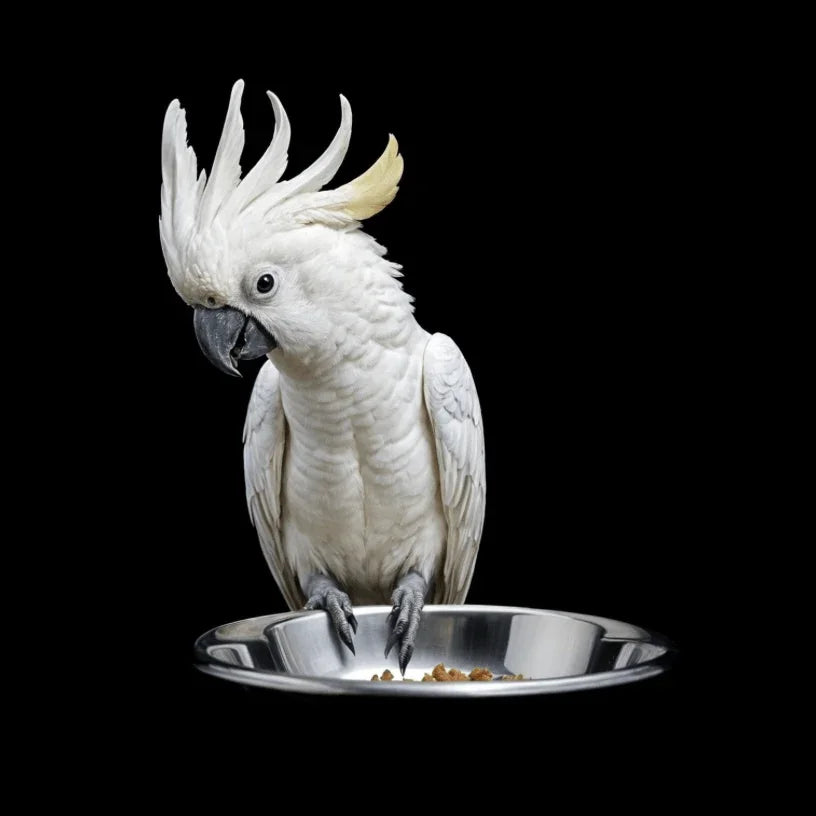
Accessories & Supplies
In the Accessories & Supplies category, you'll find everything you need to...
-
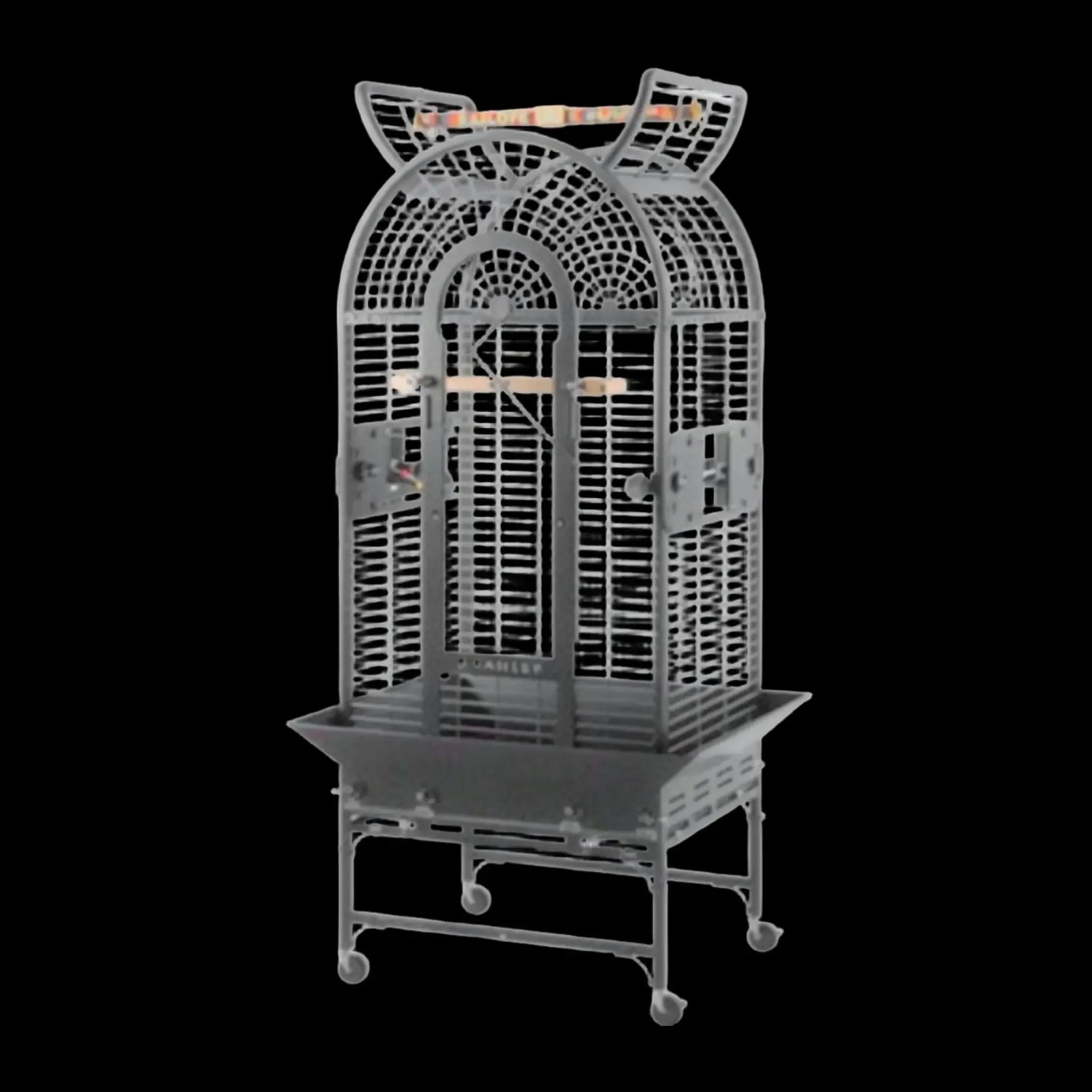
Cages & Playgrounds
Original Strong parrot cages have a rock-hard and non-toxic coating to prevent...









